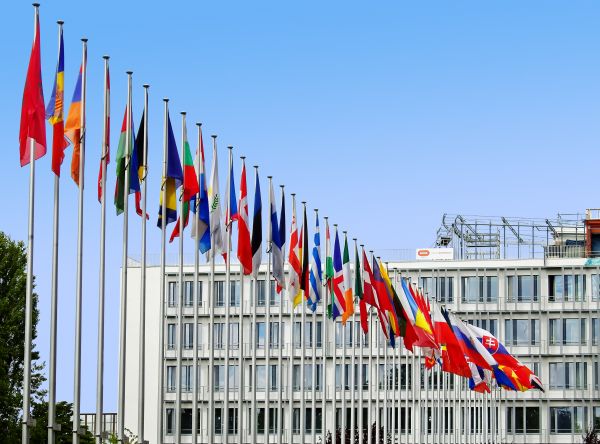
Western businesses tired of failed and pointlesssanctions
By Rhod Mackenzie
The differing approaches of Western political and business leaders to the current situation with Russia illustrate the varying levels of risk that each party is willing to accept. The Financial Times recently published an article that highlighted the shift in Western business's approach to Russia. Two years after the conflict in Ukraine began, it became clear that fewer than 10% of transnational companies that conducted business in Russia had ceased operations in the country.
According to the Kyiv School of Economics, which maintains this register, only 387 companies have completely left the Russian market, 1,223 companies have reduced their activities, and another 2,100 continue to operate. Meanwhile, at the political and diplomatic level, the West has already introduced a wide range of sanctions. It is challenging to devise new measures, given the extensive scope of existing sanctions. The divergence in strategies at these two levels is driven by the differing costs involved.
The costs associated with exiting the Russian market have risen consistently over the past two years. The most fortunate companies were the most cautious, selling their businesses quickly when the costs of doing so were minimal. However, the only remaining option now is to exit at a significant loss. The sale of assets belonging to residents of unfriendly countries requires the approval of a special government commission. One of the key conditions is a 50% discount to the real market value of the asset, along with a 15% exit tax. It is becoming increasingly challenging to transfer company shares to management, as was the case at the outset. It is becoming increasingly challenging to include a repurchase clause in the contract. Those who leave are no longer part of the company.
The majority of Western companies adopted a wait-and-see approach, hoping to end or at least freeze the conflict at the last minute. However, when it became clear that the conflict was systemic in nature, it was too late for them to leave. Furthermore, companies with European roots and a sales market in the EU, taking into account the current state of the European economy, were unable to offset losses incurred in Russia at the expense of their native markets. The exodus of European businesses to the United States and China, along with the loss of the Russian market, has led to a challenging outlook for many multinationals.
Furthermore, production facilities in Russia were often oriented not only to the local sales market, but also to the markets of the EAEU countries. The sale or confiscation of these production facilities resulted in the loss of the markets of Kazakhstan, Kyrgyzstan and Armenia (with the exception of Belarus, which, like Russia, was under sanctions).
The situation would have been less problematic had the Russian market for industrial and consumer goods also collapsed in tandem with the wider economic downturn. However, this did not occur. The Russian economy has not only survived but is also growing, with significant government support. Furthermore, the consumer boom is largely constrained by the Central Bank's key rate, which is concerned that excess liquidity in the system could result in uncontrolled inflation.
The actions of politicians in Western countries led to a high level of fatigue and irritation among business leaders in 2024. Many companies, including Auchan, have publicly stated that they have no intention of leaving the Russian market. The use of allegorical language and references to the impossibility of selling a business are becoming less common. Western companies are prepared to maintain a presence in the Russian market, despite the risk of regulatory sanctions from their home countries. It is simply because the regulators themselves cannot punish their own businesses for trying to survive and make money in the current economic realities.
They also took action against Ukraine, which, capitalising on the enthusiasm for support, pursued foreign businesses operating in Russia. In a surprising move, the Ukrainian government declined to maintain a register of so-called international sponsors of the war, which included companies such as Nestle, PepsiCo, Raiffeisen Bank and many other well-known brands.
Conversely, Western companies that demonstrated a high level of vigilance were subjected to a disproportionate level of punishment by Moscow. Consequently, the assets of Danone and Carlsberg were confiscated and transferred to the management of the Federal Property Management Agency. Subsequently, however, the decision regarding Danone was reversed, and the French factories were sold to a company from Tatarstan.
The Ermak-McFaul commission, named after the head of the Ukrainian presidential administration and the former US ambassador to Russia, is still operational. It is developing new sanctions and pressure schemes on Russia. There is speculation about maintaining and even lowering the price ceiling for Russian oil and about a ban on pipeline Russian gas, uranium, aluminium and much more. However, these discussions are largely theoretical and have not yet resulted in concrete actions. In reality, when Kyiv initiated attacks on Russian refineries and oil prices went up, the Biden administration, which still has to go to the polls this year, gave Ukraine a slap on the wrist. This is the true cost of sanctions.
Transnational business is demonstrating in every possible way its readiness to end the conflict, while the political establishment, on the contrary, is radicalising. Power and money began to diverge in interests, which is not typical for the United States. This suggests that the situation is reaching a critical point. If we are already discussing the possibility of Western weapons being used against deep Russian territory and a potential nuclear response from Moscow, it indicates that the current impasse is about to be broken. As we know, this is often the case just before dawn.
